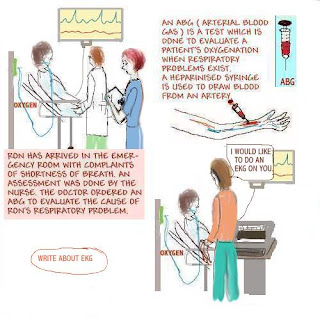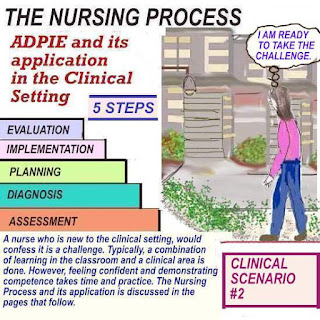ADDRESSING CARDIOGENIC SHOCK / ABG ( ARTERIAL BLOOD GAS )
Why does cardiogenic shock occur?
Cardiogenic shock may result from pump failure.
ICU care is necessary for the patient in cardiogenic shock.
ICU care is necessary for the patient in cardiogenic shock.
The left ventricle receives its blood supply from the left
anterior descending (LAD) artery. When a myocardial
infarction (MI) occurs, lack of blood supply to the left
anterior descending (LAD) artery. When a myocardial
infarction (MI) occurs, lack of blood supply to the left
ventricle, results in pump failure.
What causes a MI ( myocardial infarction)?
A myocardial infarction is also known as a heart
attack in layman's terms.
attack in layman's terms.
A MI ( myocardial infarction) is caused by a lack of
blood supply and oxygen to the heart muscle. A blood
clot or plaque may obstruct the flow of blood. This typically
blood supply and oxygen to the heart muscle. A blood
clot or plaque may obstruct the flow of blood. This typically
occurs in the patient with coronary artery disease (CAD).
Treatment of Cardiogenic shock will require ICU Care.
Learn more: CPR and Code Blue
Dearnurses.net is no longer available
Signs and symptoms of cardiogenic shock
- Hypotension as the heart loses the ability to pump enough blood
- Cool, clammy skin due to poor tissue perfusion
- Oliguria, which is a decrease in urinary output
- Chest pain which may radiate to the shoulder and jaw
- Pressure or tightness in the chest
- Nausea and vomiting
- Shortness of breath
- Chest pain which may radiate to the shoulder and jaw
- Pressure or tightness in the chest
- Nausea and vomiting
- Shortness of breath

Scenario: Ron has just arrived in the Emergency Room with complaints of
shortness of breath. The nurse does an assessment. The doctor examines
Ron. He orders tests, which include an ABG and an EKG.
shortness of breath. The nurse does an assessment. The doctor examines
Ron. He orders tests, which include an ABG and an EKG.
What is an ABG?
An ABG ( Arterial blood gas) is a blood test which is done to evaluate a
patient's oxygenation, when respiratory problems exist. A heparinized
syringe is used to draw blood from an artery, in order to do this test
(SEE ABOVE).
syringe is used to draw blood from an artery, in order to do this test
(SEE ABOVE).
The results of the ABG will give insight into a patient's oxygen levels and
other significant information. The results of the ABG will help the doctor
to decide the course of treatment. Depending on the severity, mechanical
ventilation may be ordered by the doctor.
other significant information. The results of the ABG will help the doctor
to decide the course of treatment. Depending on the severity, mechanical
ventilation may be ordered by the doctor.





Comments
Post a Comment